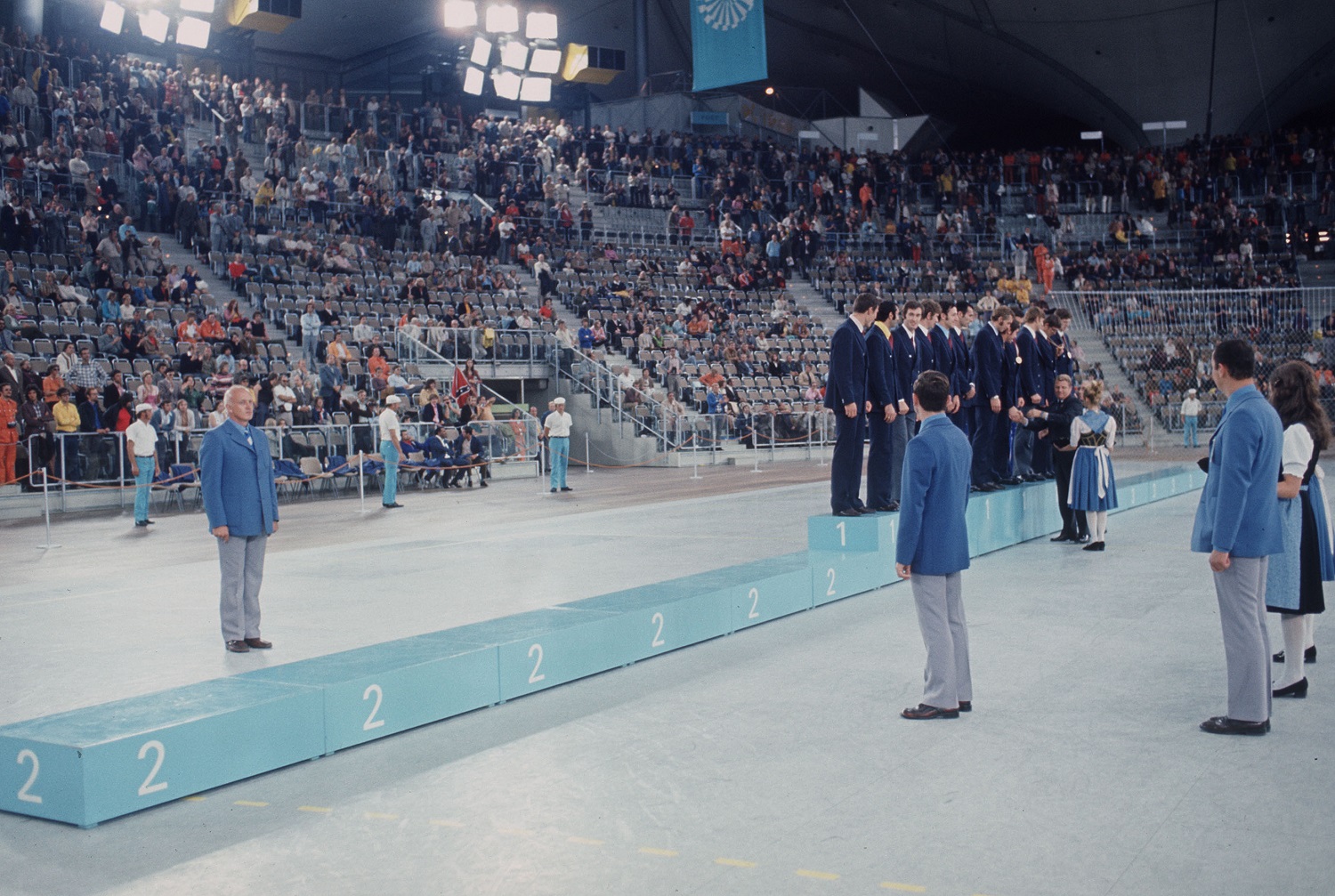Sports
Bitter Ex-Team USA Captain Kenny Davis Will Never Allow His Family to Accept His Olympics Silver Medal

Twelve men earned a gold medal nearly half a century ago, but they will never see it. Today, Team USA deserves a separate gold medal for holding to a pledge to not accept a tainted consolation prize, and Kenny Davis continues to be the most adamant of all when it comes to protesting the travesty that followed tragedy at the 1972 Munich Olympics.
The 1972 Olympic men’s basketball final was a farce
The records say that the Soviet Union defeated the United States, 51-50, in the gold-medal game at the 1972 Olympics, marking Team USA’s first loss in the history of the event.
The U.S. fielded teams of college players in an era in which all the athletes were purportedly amateurs. Concerns surfaced the previous two years as the Americans finished fifth at the FIBA World Championships in Yugoslavia and then did not medal at the Pan American Games in Columbia.
The Americans and Soviets made it through pool play unscathed. Both advanced with victories in the semifinals in the aftermath of the terrorist attack against Israeli athletes and hostage drama in the Olympic village that brought all competition to a halt for a day.
When the sides came together in the gold-medal game on Sept. 9, 1972, the USSR controlled the tempo and the scoreboard. Team USA lost leading scorer and rebounder Dwight Jones to an ejection and then Jim Brewer to a concussion early in the second half. The Americans played from behind until Doug Collins made a steal and converted two free throws with three seconds left.
Unable by rule to call a timeout after the second free throw, the Soviets protested that their request for a timeout after the first free throw had gone unheeded. They inbounded and tried to signal a timeout with :01 left on the clock. The Bulgarian referee did not allow the timeout but stopped play because Soviet coaches had spilled onto the court.
It was the beginning of a ridiculous sequence.
Team USA boycotted the Olympics medals ceremony

The Soviets inbounded for the second time, and the long pass down the court after a short entry pass bounced harmlessly off the backboard. The buzzer sounded.
“At that point, we knew it was over,” Davis, now 72, told the Courier-Journal. “There was no way that it wasn’t over. According to the rules, there was no way it was not over.”
Inexplicably, a FIBA administrator rushed from the stands to overrule the officials, granting the Soviets a timeout and resetting the clock to :03. This time, Ivan Edeshko threw long to Alexsandr Belov, who caught the ball in the key over two Team USA players, turned to the hoop, and scored uncontested over the fallen defenders for a 51-50 victory.
Chaos ensued, and the United States protested on multiple grounds. However, the FIBA Jury of Appeals let the result stand by a 3-2 margin as delegates from three communist bloc countries voted against the Americans.
Upon hearing the news, the American players met. Several of them, including Collins, Brewer, future congressman Tom McMillen, Tommy Burleson, and Tom Henderson, would go on to successful NBA careers. But nothing was more important at the time than the gold medal. The team boycotted the medal ceremony two days after the controversial finish. With no one present to accept the medals that night, they remain in a safe at the International Olympic Committee offices in Switzerland.
The IOC has asked the U.S. Olympic Committee periodically if there might be a change of heart. A decision to accept the silver medals requires unanimous consent, and the Team USA players have voted to refuse each time.
Kenny Davis will never allow his family to accept the Olympics silver medal
Kenny Davis was a star guard at Georgetown College in Kentucky, where he piled up 3,003 career points and earned berths on U.S. squads for the 1970 World University Games and 1971 Pan American Games. The New York Knicks drafted him in 1971, but he never played in the NBA. Still, Davis’ experience and leadership prompted his Team USA peers at the Munich Olympics to make him their captain.
Some of his teammates have softened their stance and would now accept the silver medals from the 1972 Olympics, but Davis is not among them. He is so vehement that Davis has written a unique clause into his will:
“Article IX: I devise and bequeath at my death that my wife Rita and children Jill and Bryan and their descendants never accept a silver medal from the 1972 Olympic Games in Munich, West Germany.”
Kenny Davis’ 1991 will
That piece of paper assures that Davis’ wishes will be followed after he dies. Davis has held on to another piece of paper for 49 years. It’s the FIBA committee’s ruling on the appeal: “Russia was officially named Olympic basketball champion.”
Davis has never accepted that verdict.
“What we did is, we won the gold,” Davis said, “and if we don’t get the gold, then I definitely don’t want the silver.”
It’s gold or nothing at all for Team USA, and it will stay that way for all eternity.
Like Sportscasting on Facebook. Follow us on Twitter @sportscasting19.











